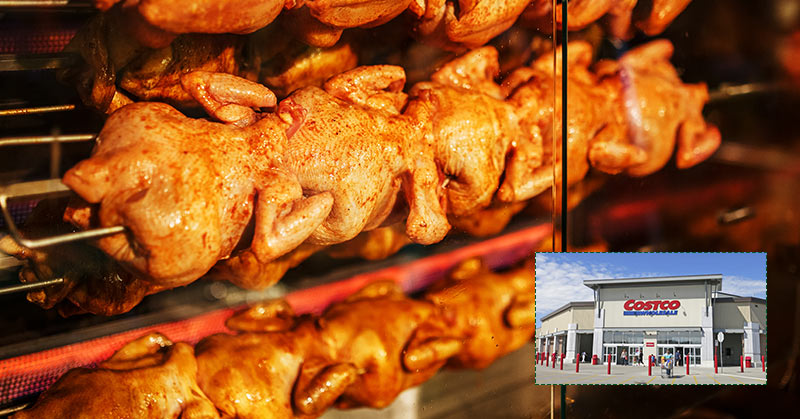If you shop at Costco in the United States, you probably know all about their $4.99 chickens. Maybe you’ve bought one now and again, or maybe they’re a regular staple on your weekly grocery list. Either way, Costco’s cheap rotisserie chickens have gained an almost cult-like following – so much so that they even have their own Facebook page.
Costco, of course, is aware of its popularity and will go to great lengths to ensure that it stays that way. The promise of these cheap chickens draws thousands of people into their stores every day, and once a customer is through those doors, they are very likely to shop around and end up spending much more money than just five dollars on a chicken.
With rising food costs, it is becoming a much greater challenge to keep the price the same, so Costco has made the decision to open its own poultry facility in Nebraska [1]. Costco has been recruiting farmers over the last few years for the project, and the $450 million complex will allow the company to control the entire process from farm to store [1].
Changes in the Wholesale Chicken Market
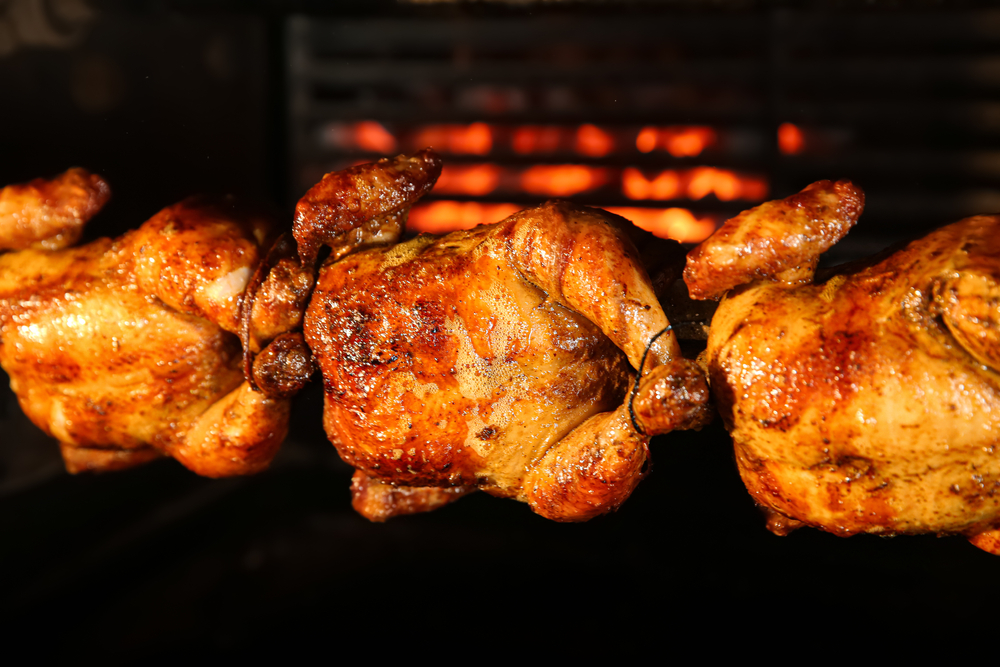
Part of the problem is the way Americans buy chicken. In the 1980’s, about half of all chickens sold in grocery stores were whole birds. Today, that number has dropped to only fifteen percent, with more people buying chicken pieces, like breasts, thighs, and nuggets [1]. Wholesale suppliers can get more money for larger birds, so Costco is having difficulty getting the correct sized bird for their needs.
“We were having trouble getting the size bird we wanted on a consistent basis,” said Jeff Lyons, senior vice president of fresh foods at Costco. “We couldn’t take a seven-pound bird or an eight-pound bird and make it work. They’re too big. They wouldn’t even fit on our rotisserie line.” [1] By moving chicken production in-house, the retail giant can now control the size of their chickens and produce only what they want and need.
Read More: Why You Should Never Buy a Rotisserie Chicken From Walmart
Costco Coming Under Fire
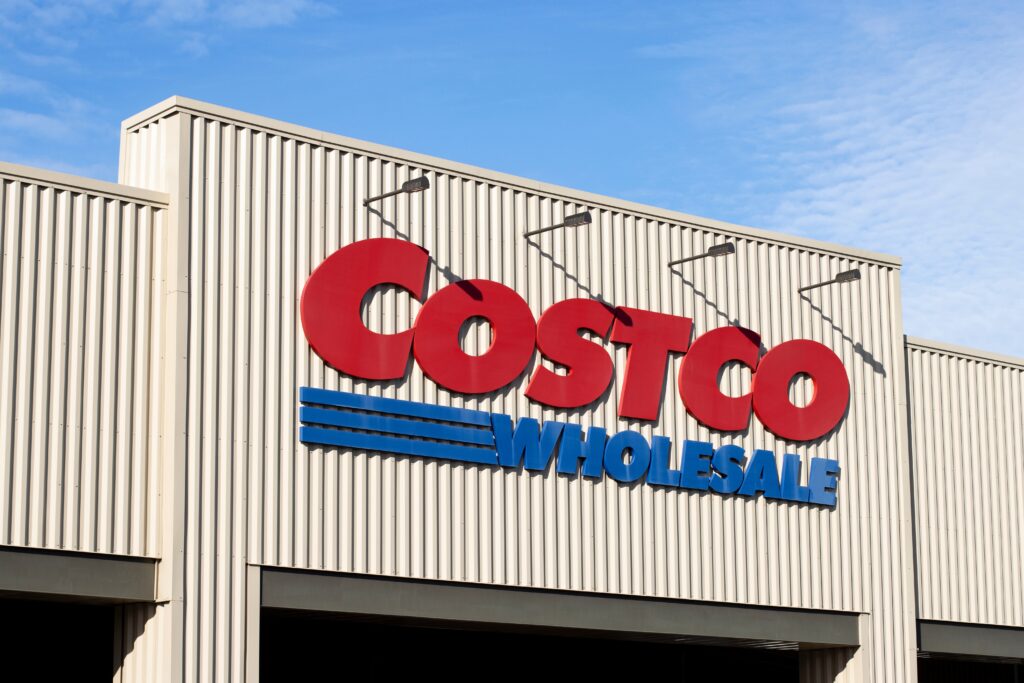
This move is somewhat of an experiment for the company, and Costco has been highly criticized for its decision by many local activists. Costco has promoted itself as a socially responsible and worker-friendly company, but the poultry industry is rife with controversy [1]. Much of the backlash is due to contract issues.
Concentrated Animal Feeding Operations

The new complex in Nebraska is what is known as a Concentrated Animal Feeding Operation, or CAFO. A CAFO is a large-scale industrial agriculture facility that raises animals in a high-density setting for the consumption of meat, eggs, or milk. They are classified by the type and number of animals they contain, as well as the way they discharge waste into the water supply [2].
These facilities are capable of providing the product at a very low cost because they are very large and they specialize in one type of product, making them very efficient. When a new CAFO is being proposed in a community, they are often argued to provide jobs and benefit the local economy [2]. This is the case with Costco, which claims that the Nebraska farming industry has been on the decline.
“We had to have farmers who were willing to grow for us, and we found overwhelming support,” Walt Shafer, a veteran Pilgrim’s Pride executive overseeing Costco’s operations in Nebraska, said in a recent interview. “These grain farmers out here want to diversify.” [1] While this all seems wonderful, there is a dark side to this kind of operation.
Degenerative and Contract Farming
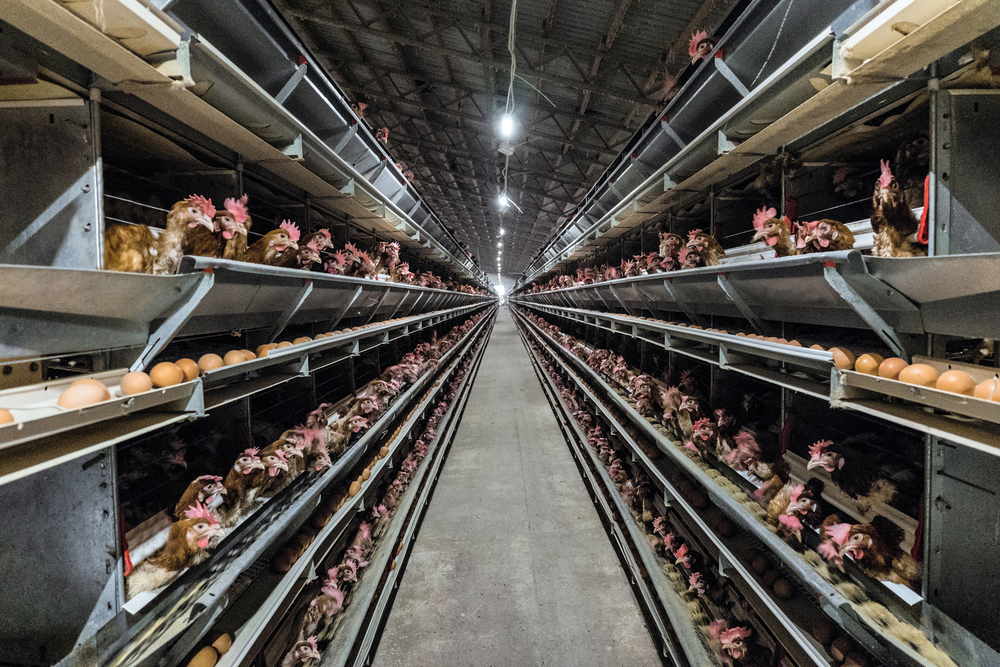
Many critics are claiming that Costco’s facility in Nebraska is yet another example of degenerative farming. This type of agriculture was introduced in the mid-1990s by Monsanto and has been blamed for destroying the economic livelihood of farmers and polluting our soil, among other issues [3]. These monoculture farms rely heavily on only one or two crops of products, which puts the farmer at risk should there be production problems. Having a singular crop also requires much greater chemical input, which destroys the environment [3].
Contract farming often goes hand-in-hand with this type of agriculture, and the new Costco plant is no exception. It is defined as a fixed-term arrangement between a farmer and a contractor, agreed upon before production begins. In this type of agreement, the farmer commits to selling a designated crop (like chickens) to the contractor (like Costco), and the contractor agrees to pay the farmer a price according to a specific method at an agreed-upon time [4].
Read More: How Shrimp Farming and Other Seafoods are Threatening Your Health
Issues with this Type of Farming

The issue with this type of farming is that the farmer is required to make a large upfront investment, and all of the risk falls on the farmer should something go wrong. If the contract is terminated, or the crop fails, the farmer has to absorb those costs [4].
Farmers in Nebraska have collectively invested $350 million into building barns for chickens, and opponents are claiming that entering into a contract with Costco is risky and that farmers will not be making the profits Costco claims they will.
Robert Taylor, a professor emeritus of agricultural economics at Auburn University and a longtime critic of the poultry industry, blasted Costco’s contracts. “This particular form of contract agriculture essentially makes the farmer an indentured servant,” he said. “The farmer is basically reduced to a chicken house janitor.” [1]
The Environmental Impact
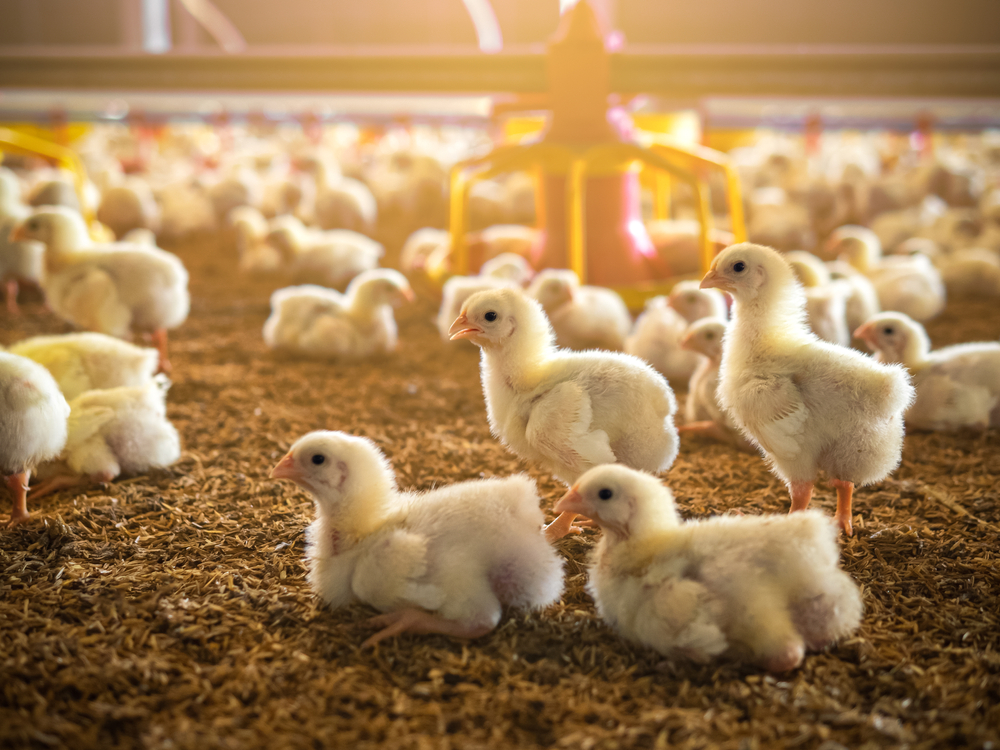
What is perhaps even more concerning is the environmental impact that CAFO’s have on our soil, water, and air. Water contamination due to waste runoff has been a primary concern in agricultural communities for a long time, and CAFO’s present an even greater threat because of their immense size [5].
Water sources surrounding these facilities are not adequately protected and are contaminated with excessive nutrients, microbial pathogens, and pharmaceuticals present in animal waste. This negative impact on surface water and nearby wildlife has been documented across the United States [5].
CAFOs produce immense amounts of manure, with some farms generating more waste than some American cities. Sewage treatment plants are required for human waste, but not for agricultural waste. Because these farmers are receiving feed from their contractors instead of growing it themselves, there is no need for manure in these quantities. This buildup of excess manure ends up in our water, and the emissions from degrading manure end up polluting our air [5]. This increased pollution has a direct impact on human health and also brings down the property value of residents living near these facilities [5].
Costco Pushing Ahead
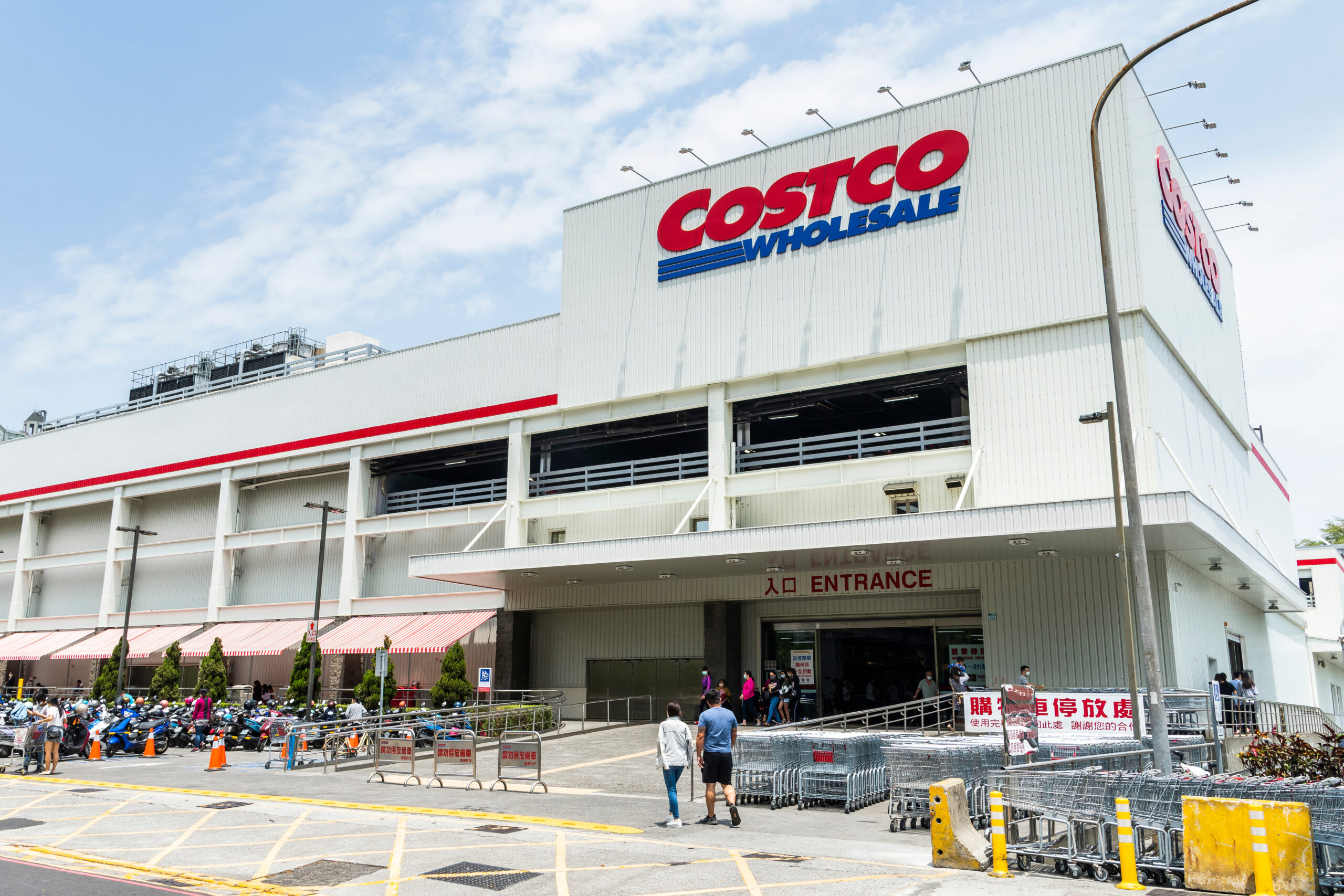
Despite the backlash, Costco is confident that its experiment in Nebraska is going to be a success and is moving forward with the proposed plan. Shafer, the executive leading poultry operations for Costco in Nebraska believes that their contracts with their farmers are one of the lowest-risk contracts available and that their poultry business will continue to grow. “I have no doubt that Costco will continue to do the right thing by our growers for the next 15 years and beyond,” [1].
Read More: The ‘Shopping Cart Theory’ supposedly determines who is a good person and who isn’t
Sources
- https://www.cnn.com/2019/10/11/business/costco-5-dollar-chicken/index.html
- https://www.cdc.gov/nceh/ehs/docs/understanding_cafos_nalboh.pdf
- https://robynobrien.com/what-is-regenerative-agriculture-and-why-should-we-pay-attention-to-it/
- https://www.intracen.org/article/Contract-farming-Opportunities-and-risks/
- https://ehp.niehs.nih.gov/doi/full/10.1289/ehp.8839
